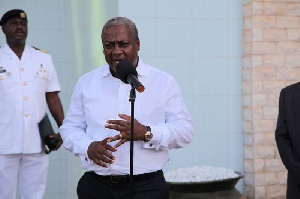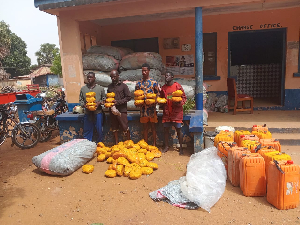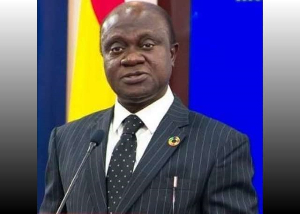Firstly, development can simply be defined as a process of growth.
Traditional welfare economics had focused on income as the main measure of well-being or development. This parameter witnessed countries being seen as developed or underdeveloped (poor) with respect to the income levels of its citizenry.
Later, works of renowned economist Amartya Sen included other parameters in the broader sense. His extensive works showed that poverty involved a wider range of deprivations in health, education and living standards which were not captured by income alone.
Sen's view is now widely accepted: Development must be judged by its impact on people, not only by changes in their income but more generally in terms of their choices, capabilities and freedoms; and we should be concerned about the distribution of these improvements, not just the simple average for a society.
The idea of development moved on to connote of lasting change. It was conceptualized to consist of more than improvements in the well-being of citizens: it also conveys the ideas of the capacity of economic, political and social systems to provide the circumstances for that well-being on a sustainable, long-term basis.
The idea of sustainable development emerged to address the long-term characteristics of development with the environment as the focus and Human beings entitled to a healthy and productive life in harmony with nature. Sustainable development is development that meets the needs of the present without compromising the ability of future generations to meet their own needs.
This concept is an admission that development is much more than economic growth and that the pursuit of economic growth and expansion alone cannot sustain both the present and future generations. The concept is also an admission of the imbalance in attention the environment and other key sectors have received in the quest to achieve economic development.
Also, it underscores the need for the progress and development of humanity and civilization to be regarded from a holistic perspective and for it to be pursued on a multi-dimensional scale or context. Biodiversity and the ecosystem, the environment, and the systems and structures of good governance should not suffer negatively and unduly at our efforts at eliminating social marginalization and pursuing economic growth.
Many conferences organised since 1989 has sought to enhance the sustainable development idea which include 1992 in Rio de Janeiro, Brazil, (Earth Summit), 1972 Stockholm conference on Human Environment and World Conservation Strategy of the World Conservation Strategy of the International Union for the Conservation of Nature in 1980, G8 Millennium Development Goals and the recent Sustainable Development Goals.
Outcomes from the conferences are to be executed globally, however each country had the right to develop local strategies in achieving the objectives.
In today's world, with global and local climate change, hyper population growth, depleting renewable and nonrenewable resources, declining biodiversity, and agricultural scarcity, sustainability is crucial now more than ever. Nearly half of Earth's surface has been used for agricultural production to meet the demands of rapid population growth.
This amongst others has resulted in the unrealistic achievement of sustainable development as a desired long-term continuity to development. In Ghana, current economic growth and industrialization cannot be achieved without causing environmental damage.
Ghana has recorded high perennial floods in the capital and other regions. Flood occurs when land is inundated with water, mostly rainfall. This has been due to climate change and poor urban planning and the use of reserved land sites for construction and economic activities.
The city's massive sprawling built-up and paved land surface has reduce the available area to allow rainwater to percolate or sink into the ground causing high volumes of rush-off and flush flood. Rapid urbanisation and its attendant activities have impacted negatively on drainage systems. There is massive peripheral development of housing and estates in the major cities; Accra, Kumasi etc.
Out of ignorance and disregard for building regulations, people build in the green belt-zones of the country. The popular flood event in Ghana was the June 3, 2015 with witnessed several hours of hours of tropical rainfall, and gas explosion that killed more than 200 people.
Ghana's forest zone is tampered with everyday usually purposes making its sustainability questionable. Ghana has the one of the highest deforestation rates in Africa, 2% per annum losing an average of 135000 hectares of forest per year (FAO, 2007). Deforestation converts forest to non-forest land uses and the trees cut are usually used for charcoal, construction and industrial.
According to Nsenkyire (1998), the causes of deforestation are interrelated and mostly linked to livelihood and development; forest clearance for cocoa and food crop farms, logging, corruption, poverty etc.
Sustainability is threatened when the deforestation activities does not commensurate with the planting tree (afforestation) to replenish to the lost trees. Citizens should be guardians of the remaining trees and encouraged to plant more trees.
Mining as a major economic activity in many developing economies. In Ghana, mining activates in gold-rich regions can be traced back to the colonial era. Mining activities post a great threat to our environment. The rapid upsurge of illegal mining (also known as galamsey) has witnessed the exploitation of mining sites with little interventions for the environment but mostly for economic gains and livelihood.
Due to the existence of minerals in rivers and on farmlands, miners often resort to blasting of the river body and its environs to enable access. Others also release toxic substances into the river causing lot of diseases and other health hazards especially to fishermen and fish consumers.
In conclusion, development as a concept has been upgraded to include its ability to progress continually for future generations. This has brought the idea of development sustainability seeking to harness on the growth in socio-economic activities and incomes without compromising the environment.
Ghana as part of its country-led strategies has inculcated these commitments (directly and indirectly) into a rather plethora of national and institutional development plans, policy frameworks, strategic investment and action plans. However, the attainment of sustainable development is bleak due to the less prioritization of the environment. This is manifested in Ghana's environmental issues, notably perennial floods, deforestation and illegal mining activities.
References
Fairhead J, Leach M (1998), Reframing Deforestation: Global Analysis and Local Realities-Cases from West Africa. London: Routledge.
MLF, (1994). Forest and Wildlife Policy, Republic of Ghana, Ministry of Lands and Forestry, Accra, Ghana.
Twitter: @skosei001
Opinions of Friday, 12 August 2016
Columnist: Osei, Sylvester
Can development in Ghana be sustainable?
Entertainment














